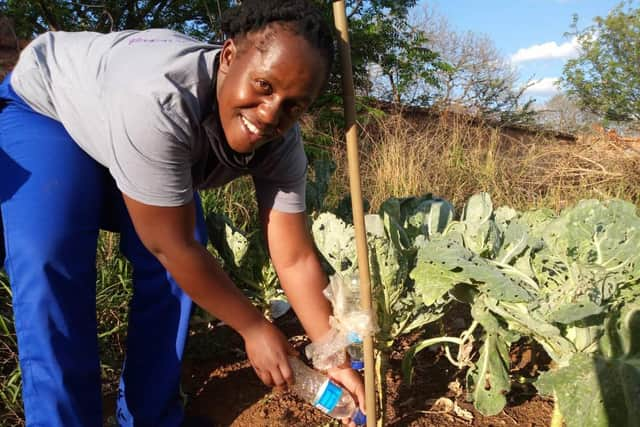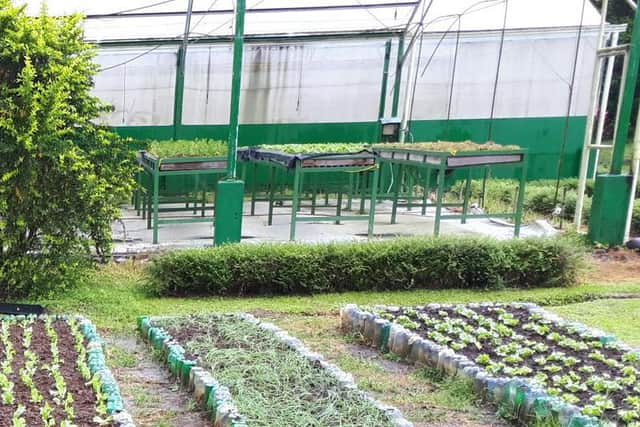COP26: Why educating girls is crucial in the battle against climate change
She already holds an agriculture qualification, from studies in Costa Rica, and is due to begin a course in economic development in Israel.
She also works with Camfed (Campaign for Female Education), a pan-African, grassroots-led movement tackling poverty, inequality and injustice through girls’ education and women’s leadership, providing training in sustainable agriculture.
Advertisement
Hide AdAdvertisement
Hide AdThe 27-year-old is just one of the inspirational individuals who has brought their real-life experiences to audiences in Glasgow and worldwide at the COP26 summit.
“When you’re educated as a women, you’re empowered,” she said.
Zimbabwe is one of the many African countries already experiencing severe consequences of climate change, with increasingly frequent and extreme droughts and floods.
In March 2019 the deadly tropical cyclone Idai swept across southern Africa, leaving a trail of death and destruction in its wake.


Schools, hospitals, homes, farmland and whole communities were swept away.
Research has shown the impacts of climate change have a disproportionate impact on women and girls because of their traditional roles in families.
United Nations figures indicate that four out of five people displaced by climate change are women.
Roles as primary caregivers and providers of food and fuel make them more vulnerable when flooding and drought occur.


Life could have turned out very differently for Shareka.
Advertisement
Hide AdAdvertisement
Hide AdShe grew up in a community in northern Zimbabwe where small-scale farming forms the backbone of life, raised by her octogenarian grandmother from the age of seven after own mother died.
Attending primary school involved a 15-mile round-trip each day, on foot – a long journey potentially fraught with danger, with a risk of rape attacks en-route.
Shareka’s grandmother, like most of Zimbabwe’s 1.5 million smallholders, was a subsistence farmer, growing what she could to feed the family, but not much more.


Existence in their community was focused on “survival”.
“Agriculture is everything,” she said.
“It’s a source of food, income, employment. It’s life.”
Traditionally women are responsible for collecting water and food for their families, often involving long treks, with girls expected to help out with raising siblings and other domestic chores.
Many young girls are married off to reduce the number of mouths to feed in families.
This looked set to be Shareka’s destiny, with her grandmother unable to afford the fees to send her to high school, 10 miles away.
Until Camfed stepped in, providing a scholarship and place at a boarding school.
This put Shareka on the path to where she is today.
“Camfed came to my rescue,” she said.
“I had time to study and read. It gave me the opportunity to be successful and productive.
Advertisement
Hide AdAdvertisement
Hide Ad“They provided school fees, uniforms, books, food and sanitary products, costs that can make high school out of reach for many poor families.”
Ahead of the Camfed events at COP26, she said: “I want to tell global leaders to invest in education, especially for girl children.
“It benefits everyone.
“The biggest issues in the world are inequality, poverty, achieving sustainable development goals, tackling climate change.
“If we educate girl children and give them a voice then they can help solve these global problems.
“Education is a solution. And women implement change quickly.”
A message from the Editor:
Thank you for reading this article. We’re more reliant on your support than ever as the shift in consumer habits brought about by coronavirus impacts our advertisers.
If you haven’t already, please consider supporting our trusted, fact-checked journalism by taking out a digital subscription.
Comments
Want to join the conversation? Please or to comment on this article.
